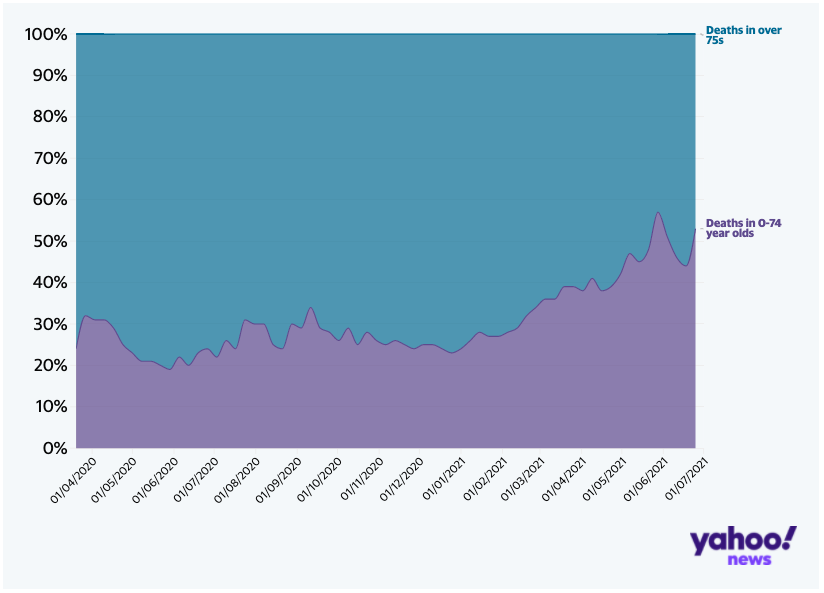Just like Covid? How many people die from flu each year in England?
“We are going to have to learn to accept the existence of Covid and find ways to cope with it – just as we already do with flu."
That's according to the new health secretary Sajid Javid, writing in a recent piece for the Mail on Sunday.
Javid argued that it will not be possible to bring the risk of Covid down to zero, as he put forward the case for lifting lockdown.

However experts warn that the comparison glosses over key differences between Covid and seasonal influenza.
England's chief medical officer, professor Chris Whitty, while acknowledging that coronavirus will not disappear entirely, warned in April: “It [Covid] is not flu, it is a completely different disease.
"But the point I am making is: here is a seasonal, very dangerous disease that kills thousands of people every year and society has chosen a particular way around it."
Writing in The Conversation on Thursday, microbiologist Dr Sarah Pitt also warned it should be treated like norovirus, the vomiting bug, rather than flu as England comes out of lockdown.
"With norovirus," Dr Pitt wrote, "we keep people with the infection away from others. We ask parents whose children have symptoms to keep them off school.
"And in hospitals and care homes, patients with norovirus are nursed separately from others, staff use PPE for protection, and surfaces are deep cleaned.
"Handling Covid-19 in the future should be more interventionist like this."
How many people actually die from flu each year?

As the above chart demonstrates, there are significant differences every year, with a particularly lethal flu outbreak in 2017/18.
Like Covid, flu mainly affects older people compared to younger age groups. In that 2017/18 season, for example, 88% of flu deaths were in over-65s.
Flu outbreaks were suppressed in 2020/21 due to Covid lockdowns, though a surge is expected later this year (see further down this page).
How does this compare to Covid?
England's death toll from the last five flu seasons in the chart above comes to 56,461.
In the past 16 months, England has seen more than double the number of coronavirus deaths – 112,880 as of Friday – within 28 days of a positive test, with 90% of these among over-65s.
What can we expect from Covid and flu this winter?
Prof Whitty has already warned the UK needs to "brace" for a difficult winter, with Covid and flu surges likely.
Vaccines have reduced the proportion of Covid deaths in the over-75 age group, as this chart demonstrates.

However, even with a majority of people double-jabbed, Prof Whitty, speaking at the NHS Confederation conference last month, said he is still expecting a “late autumn/winter surge”.
“And that’s because winter and autumn favour respiratory viruses. Therefore it would be very surprising if this particular highly transmissible respiratory virus [doesn’t cause] further problems over the winter.”
Last winter, the country was in local and national lockdowns. As a result, flu outbreaks were suppressed. This winter, with few – if any – restrictions anticipated, Prof Whitty is expecting a new surge in flu cases.
Read more:
Just two double-vaccinated under-50s have died from Delta variant
Rishi Sunak tells workers to get back to the office
“Either we will have a very significant Covid surge and people minimise their contacts and we have less respiratory viruses… or people will be back to a more normal life with some Covid, but on top of that we will go back to having flu and RSV [respiratory syncytial virus] surges.
“So I think we need to be aware of and braced for the fact that the coming winter may well be quite a difficult one, not probably on the scale of the last one… but still quite a significant one.”


